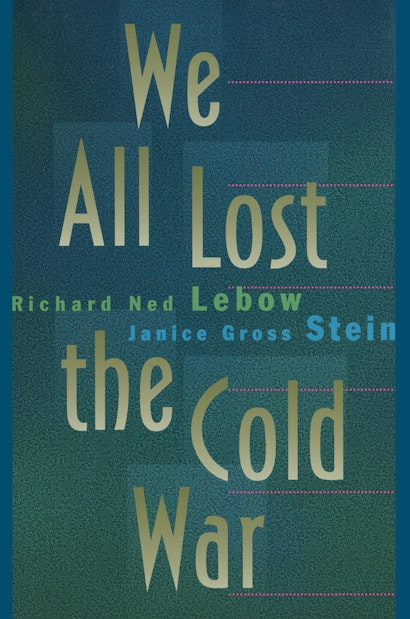Drawing on recently declassified documents and extensive interviews with Soviet and American policy-makers, among them several important figures speaking for public record for the first time, Ned Lebow and Janice Stein cast new light on the effect of nuclear threats in two of the tensest moments of the Cold War: the Cuban Missile Crisis of 1962 and the confrontations arising out of the Arab-Israeli war of 1973. They conclude that the strategy of deterrence prolonged rather than ended the conflict between the superpowers.
Awards and Recognition
- One of Choice's Outstanding Academic Titles for 1994
Richard Ned Lebow is Professor in the Graduate School of Public and International Affairs at the University of Pittsburgh. Janice Gross Stein is Harrison Professor of Conflict Management and Negotiation at the University of Toronto.
"The orthodoxy . . . is that deterrence worked and the arms race defeated the Soviet Union. Hitherto there has been little dissent from those positions, apart from those 'revisionist' historians who merely turned the whole orthodoxy on its head. . . . Richard Ned Lebow and Janice Gross Stein are not revisionists in that sense. They are far too sensible for emotional nonsense of that kind. Yet their work is quite as unorthodox, probably as shocking to the closed corporation of Cold War 'scholars' but much more surprising than that of the Chomskyans."—Godfrey Hodgson, The Independent (London)
"They've got it just right. It is a dangerous conclusion that the West won the Cold War. The argument that one side won the Cold War is mistaken. We all lost the Cold War, particularly the USA and the USSR. We all won by ending it. That is the scientific conclusion."—Mikhail Sergeevich Gorbachev


